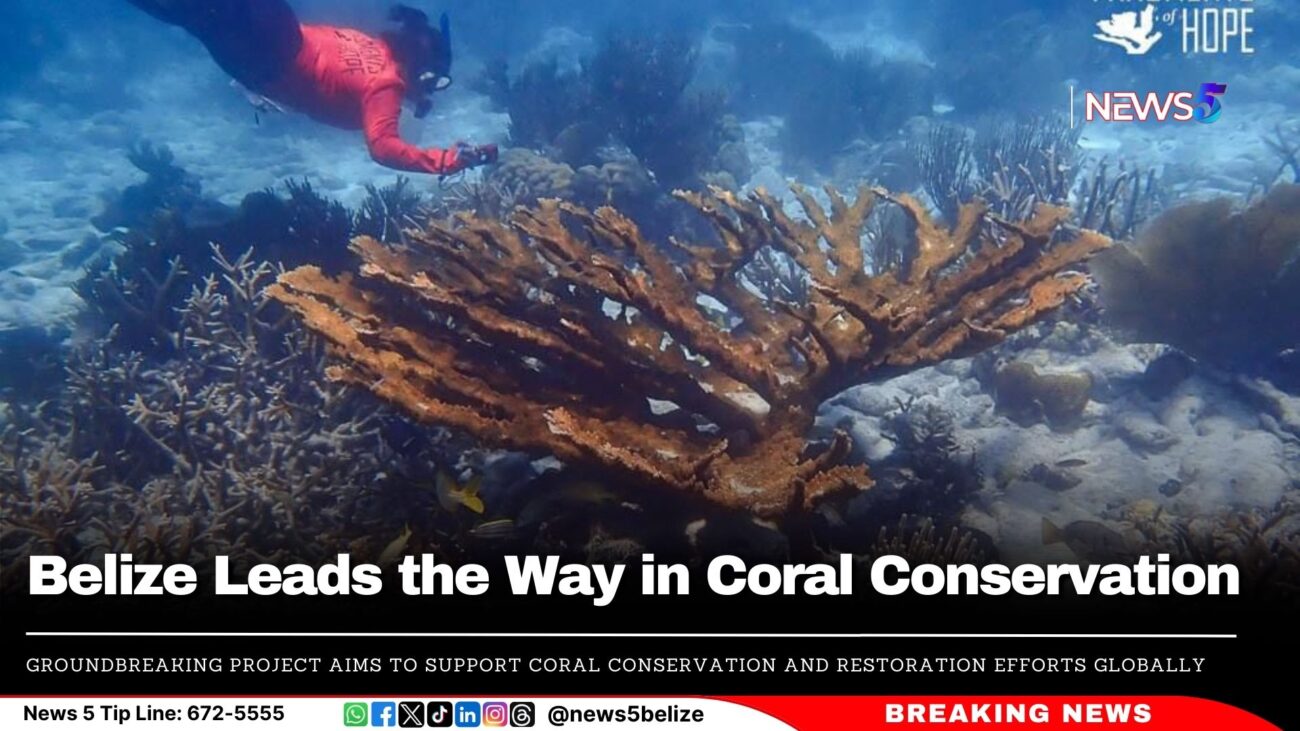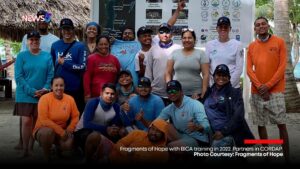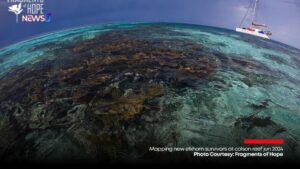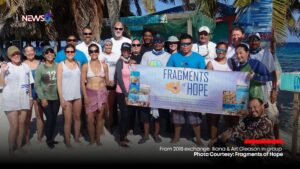Belize Leads the Way in Coral Conservation
Placencia Village, Belize – Belize is at the forefront of a new international project led by renowned marine scientist Prof. Iliana Baums, set to revolutionise coral restoration efforts in the Caribbean and beyond. Titled “Building the Tools for Scientific Population Management of Critically Endangered Coral Species in Belize as a Model for Other Restoration Programs,” the project aims to develop innovative tools to ensure the survival of endangered corals, such as the iconic elkhorn coral (Acropora palmata), whose populations have faced drastic declines in recent years.
The three-year project, with a total budget of USD $1.39 million, brings together experts from Belize, Germany, Honduras, and the USA. It is supported by leading research and conservation institutions, including the Helmholtz Institute for Functional Marine Biodiversity (Germany), the Species Conservation Toolkit Initiative (USA), Fragments of Hope (Belize), and the Smithsonian’s National Zoo and Conservation Biology Institute (USA), among others.
The Need for Coral Population Management
Coral populations across the Caribbean have been in rapid decline due to climate change, disease, and human activities. While coral restoration projects have traditionally focused on ecosystem services, there is a growing need to shift towards species-level management to prevent extinction. The life histories of corals, however, make them challenging to manage using existing wildlife conservation tools. This project seeks to fill this gap by developing a Geographic Information System (GIS) database and testing innovative population management software tailored to the unique needs of coral species.
Key Project Objectives
The project will focus on the following key objectives:
- Developing a GIS Database – A comprehensive database will be created to track the demographics of coral colonies in Belize and Honduras.
- Engaging Stakeholders – Collaboration with local coral restoration practitioners will ensure the management tool is co-designed to meet their needs.
- Data Analysis for Coral Management – Existing data will be analyzed to provide actionable recommendations for coral restoration, particularly in relation to bleaching resistance.
- Testing Population Management Tools – Population management software, traditionally used for other wildlife, will be assessed and adapted for coral species to enable scenario modeling.
How the Project Will Be Implemented
The project team will systematize over 10 years of coral survey data from Fragments of Hope, Belize, digitize time-series photos of coral colonies, and establish the genetic identity of coral samples. Workshops and site visits with stakeholders will help ensure that the tools developed meet the needs of coral conservation practitioners. In addition, data analysis will focus on identifying stress-tolerant coral genotypes, providing essential information for coral restoration efforts.
Impact and Global Potential
The development of an interactive, community-driven database will enhance coral population management efforts, starting in Belize and Honduras. The project’s findings will contribute directly to the restoration of endangered coral sites in Honduras using scientifically-backed donor selection criteria. More importantly, the tools and strategies developed through this project will serve as a model for coral restoration programs worldwide.
Major Highlights Include:
The creation of an interactive population management database co-designed with local coral restoration practitioners.
The use of previously untapped data to improve coral restoration strategies.
Contribution to the restoration of endangered corals in the Caribbean, with potential applications for global coral conservation efforts.
Fragments of Hope Founder Lisa Carne stated, “For years, Fragments of Hope has urgently needed a resource like the CORDAP award. This funding allows us to finally consolidate long-term data on coral genetics, growth rates, and bleaching history, which we have been monitoring since 2006, with additional records from 2010. This tool is crucial not only for advancing our work but also for assisting other practitioners in organizing similar long term datasets. With this support, we can adopt more precise, informed strategies to address the rapidly intensifying challenges of climate change.”
Giselle Brady of Bay Islands Conservation Association stated, “At BICA we are super excited; this is what being in science and conservation is all about. Develop solutions for local challenges using innovative ideas and technologies to leverage our hard-earned data to help restore our beautiful reefs. This will allow Honduras to maximize the efforts of so many stakeholders that have been working in coral restoration. By providing an avenue to develop technical prowess in the latest techniques of GIS based coral restoration protocols it provides an avenue for an outsized impact in the fight to rebuild our coral ecosystems. With this we will have a greater ability to synergize our efforts through better understanding and effective solution building.”
Fragments of Hope is a community-based organization located on the Placencia Peninsula in Belize. Their primary focus is on the restoration of coral reef habitats and advocating for the sustainable management of associated ecosystems. Founded by Lisa Carne, the organization has been instrumental in coral restoration efforts, particularly with the critically endangered Acropora species, such as elkhorn and staghorn corals.
Since its inception, Fragments of Hope has successfully out-planted over 170,000 coral fragments across various sites in Belize, including Laughing Bird Caye National Park. They
work closely with local fishers, tour guides, and regulatory agencies like the Belize Fisheries Department to ensure the sustainability and effectiveness of their restoration projects1.
Would you like to know more about their specific projects or how you can get involved?
For further information, please contact:
Prof. Iliana Baums
Project Lead
Email: iliana.baums@conservation.org
Lisa Carne
Fragments of Hope
Email: info@fragmentsofhope.org










Facebook Comments